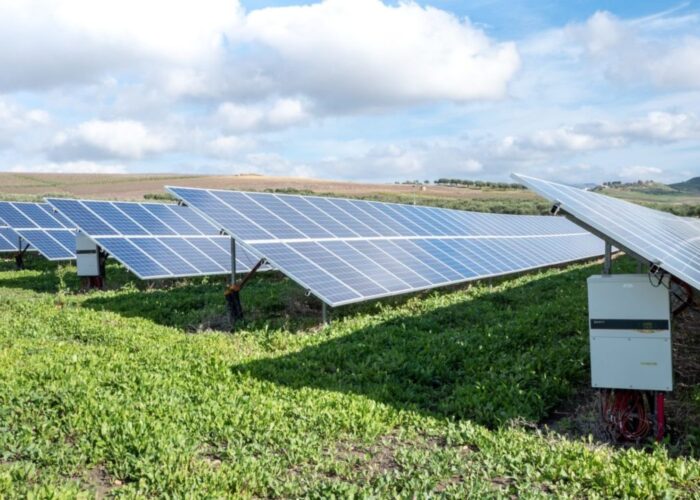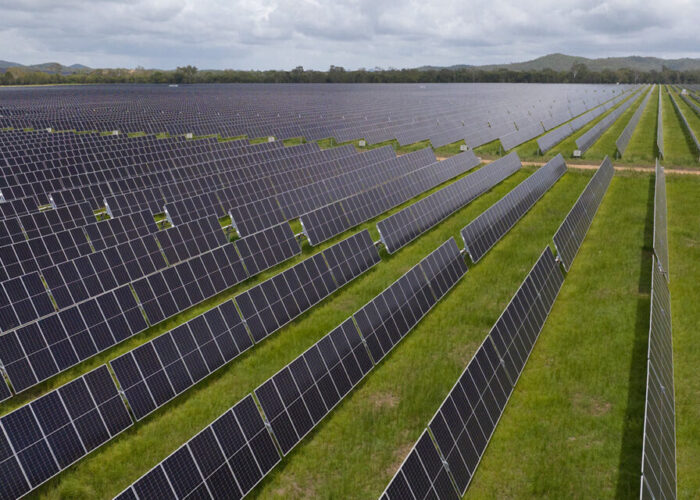
US solar manufacturer Silfab Solar has signed a supply deal for US-made solar glass with PV recycling firm, Solarcycle.
The deal will see glass shipped from Solarcycle’s planned production facility in Polk County, Georgia to Silfab’s 1GW/1.2GW solar cell and module production plant in South Carolina.
Unlock unlimited access for 12 whole months of distinctive global analysis
Photovoltaics International is now included.
- Regular insight and analysis of the industry’s biggest developments
- In-depth interviews with the industry’s leading figures
- Unlimited digital access to the PV Tech Power journal catalogue
- Unlimited digital access to the Photovoltaics International journal catalogue
- Access to more than 1,000 technical papers
- Discounts on Solar Media’s portfolio of events, in-person and virtual
Solarcycle announced the facility in February – a “first of its kind” site that will use recycled glass from decommissioned solar modules to produce new glass. Later the same month, the used glass itself received verification from a multinational glass company that it could be used to make high-quality PV-grade glass sheets.
Silfab said that by deploying Solarcycle’s US-made glass – which is set to begin production in 2026 – the manufacturing emissions from their operations will reduce by 30% and their shipping emissions by 50%. The two companies have already signed a module recycling agreement, and with this glass supply deal have formed one of the first forays into a ‘circular’ economy for solar in the US.
Suvi Sharma, Solarcycle co-founder and CEO said: “This marks a significant step in securing an integrated and reliable supply chain for solar made in America. We are grateful to Silfab for modeling leadership within the industry with their deep commitment to advancing sustainability and emissions reductions in the clean energy sector.”
Solarcycle recently signed a recycling agreement with PV manufacturer Qcells, which is building a vertically integrated solar manufacturing operation in Georgia.
Silfab President and CEO, Paolo Maccario said: “Utilising American-produced glass in our PV modules further meets the county’s demands for USA content in made-in-America clean energy products and creates additional US.”
Among its raft of tax incentives for renewable energy production and manufacturing, the Inflation Reduction Act (IRA) contains a Domestic Content Adder which sees eligible solar modules receive a 10% tax break on top of the standard IRA incentive. To qualify, at least 40% of a panel’s total cost must be covered by US-made components, rising to 55% from next year. Solarcycle’s domestically produced glass could make the threshold more reachable.
The Domestic Content provision has had mixed responses from the US solar industry. Canadian manufacturer Heliene told PV Tech Premium that achieving the threshold would be “a big ask” for US manufacturers, as the most expensive part of the module – the cell – is underrepresented in the US value chain. Almost all solar cells in the US are imported from Southeast Asia.
However, last week CEO of cadmium telluride (CdTe) thin-film solar manufacturer First Solar, Mark Widmar, told a hearing at the US Senate that the Domestic Content adder had the potential to create a “durable market pull for solar produced via high-value domestic manufacturing”. As a CdTe manufacturer, First Solar does not rely on imported silicon cells.






